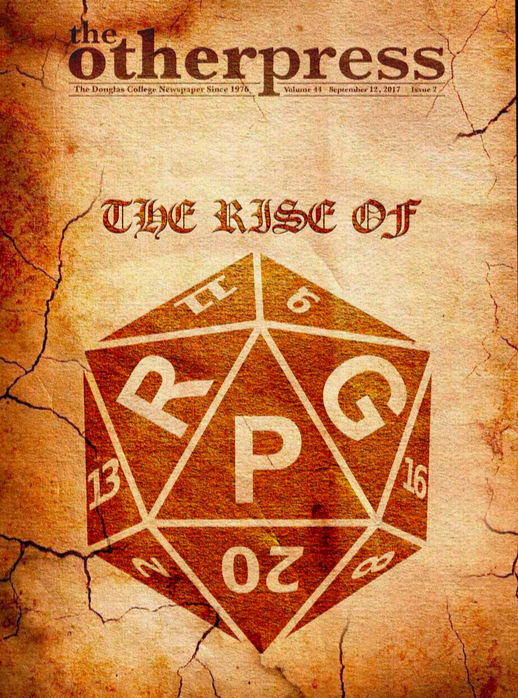The problem with procrastination
By Keating Smith, Staff Writer
During the heart of final exam crunch time last semester, procrastination hit my conscious like a red-hot bullet shot from a long-range rifle. It hit hard and left behind impending psychological scars—all of which made me utterly curious as to what causes are behind the widely- used word mysteriously floating around college campuses. While the 5 a.m. term paper writing sessions I indulged in played a role in my own personal understanding of the term, it was the story of a financially broke and pressed-for-time fellow classmate in his last semester of school that slapped me awake. He found his time was better used scouring the soon-to-be-closed Zellers for bargains than studying for his final exams. I remember jolting in my seat upon him finishing the story. “Holy crap, I’ve been there before,” I said to myself. Haven’t we all?
So what is procrastination exactly? Is it a psychological barrier we accuse every time we fail to complete a task on time and to our fullest potential? Are we born with procrastination in our genetic makeup? Or is procrastination something that we develop over time?
What is Procrastination?
In its basic form, the word procrastination is derived from the Latin words Pro meaning “forward,” and Crastinus meaning “of tomorrow,” and among the hundreds of parallel definitions procrastination, the University of Buffalo’s counseling services have best defined it as “the practice of delaying completion of any responsibility, project, or activity until it becomes too late to complete it in a satisfactory manner.”
Closer to home, retired Simon Fraser University behavioural psychologist Dr. Barry Ledwidge defines procrastination simply as “Putting something off until later, something unpleasant that you know you have to do eventually.”
Ledwidge spent over three decades both studying and teaching behavioural psychology at SFU and based on his experiences with procrastination, he has seen every case imaginable exhibited by students, faculty, and even down to a personal level, right in his own home.
“My son, who has a B.A. in English Literature, never started an assigned essay until the night before. When I woke up the next morning he would have the typed draft on my bedside table ready for me to proofread. This behavior was reinforced because he got to do other fun stuff—listen to music, watch television, social activities, drink beer, or sleep instead of working on the essay. This resulted in him achieving a B- on the essay, which is all he wanted,” says Ledwidge.
To me, the more time I spend in a post-secondary institution, the more I see similar behaviours exhibited by the students I interact with on a daily basis. Whether becoming more aware of these now than in the beginning, one cannot help but wonder if leaving homework to the last minute is just another college norm.
Type A vs. Type B Procrastinators
Dr. August John Hoffman’s 2009 book Stop Procrastinating Now! categorizes procrastination personalities into two types: Chronic-Type A and Moderate-Type B procrastinators. A chronic procrastinator is “someone who will consistently delay or avoid meeting deadlines and any type of commitments,” whereas, a moderate procrastinator is “unable to achieve their goals or meet goals but is typically happy and shows few signs of stress.”
According to University of Calgary’s Dr. Piers Steel, a world-renowned psychologist who has spent 30 years studying procrastination, 25 per cent of Canadians fall into the type A category.
“For some people, this means not getting a degree or certainly not living up to their potential about what type of mark they got, what type of job they could get into,” Steel told the Canadian Press two years ago. “Low confidence and boring tasks are also principle reasons why people procrastinate,” he says.
Dr. Steel’s popular website procrastinus.com breaks procrastination into four critical perspectives: anxiety/perfectionism, self-handicapping, rebelliousness, and temporal motivation. He argues for and against procrastination with these aforementioned theories as the fundamental staples for the psychological act.
Students and Procrastination
Most experts agree that over 90-95 per cent of college students engage in some form of procrastination in spite what whatever personality type they are. This is in large part due to the fact that the pre-frontal cortex of the human brain is still developing in a person’s early 20s.
“I am told that procrastination is one of the most common problems seen in college counseling centers, so obviously many students think that it is adversely affecting their ability to do well in school,” says Dr. Ledwidge during our interview.
“For those who aspire to be an A+ student, procrastinating allows them short-term pleasure- television, social activity, et cetera for a longer-term pain (a lesser mark). This still makes sense from a behavioural perspective, as the short-term pleasure is more immediate than the long-term pain [and] the student does the same thing again next time.
“If you want an A or at least a B+ on your work, procrastinating can definitely affect a student’s Grade Point Average. Leaving yourself 12 hours to write an essay when you had seven days to work on it last week at this time, means that you won’t be able to do the amount of research for the paper that you could have done if you started early,” says Ledwidge.
“You also won’t have the time to organize that research into a logical plan, nor will you have time to do four drafts.”
How to Overcome Procrastination
The intentions of this article are not to give the reader personal advice on how to overcome something that may have serious consequences if not dealt with accordingly, but rather to give a better rudimentary understanding. There is a lot of literature available on the subject and talking to a professional, such as a psychologist or school counselor, may seem reasonable if you feel procrastination is becoming problematic in your life.
“First of all, not every procrastinator wants to stop or find ‘a cure’ for it,” says Ledwidge.
“If you really want to do something about your procrastination, the solution will depend on what factors were contributing to your procrastination in the first place. If you are procrastinating because you are lazy or because you just don’t care about the outcome, then there is probably no hope for success.
“On the other hand, if it is because you have too many other obligations or you are generally disorganized, I recommend some helpful reading on time management such as Stephen Covey’s Seven habits of Highly Effective People.
“If it’s perfectionism and a student can’t start a project because to them it has to be perfect and they fear that may not be the final product, I suggest that counseling might help.”
And finally, “If it’s depression you are suffering from, see your family physician.”
So there you have it fellow students. The P-word we so commonly refer to is not only problematic on countless levels, but has a variety of solutions to overcome it. We can use any scapegoat at our disposal to satisfy our intentions for carrying out the act, but until then, your B- project had all the potential of being a A+ project, the history of your social media newsfeeds are available to review at a later date and if it’s any reconciliation, biologists have observed that birds, bees, and dogs are all other animals that are vulnerable to procrastination.



